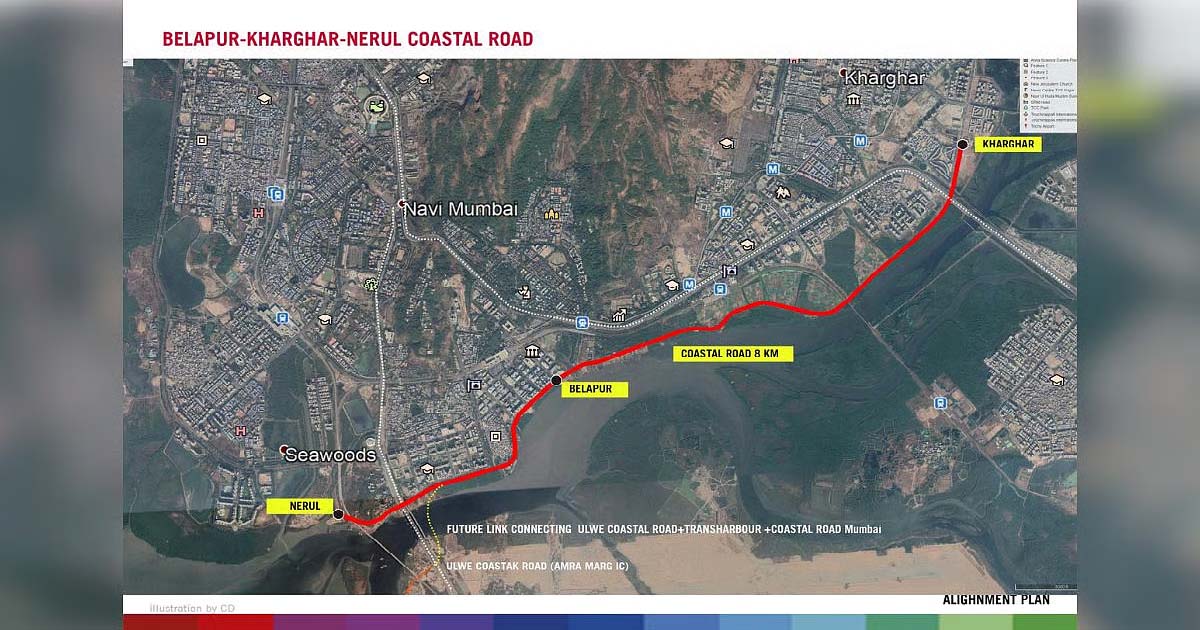Business
MAS Slaps Penalty Of SGD 2.4 Million On JP Morgan Chase Bank For Misconduct By Relationship Managers In 24 Bond Transactions

The Monetary Authority of Singapore (MAS) has imposed a civil penalty of SGD 2.4 million on JPMorgan Chase Bank, N.A. (JPM), according to a media release issued by the central bank of Singapore. The penalty was for JPMorgan Chase Bank failing to prevent and detect misconduct committed by its relationship managers (RMs).
The media release said: “In 24 over-the-counter (OTC) bond transactions, the RMs had made inaccurate or incomplete disclosures to clients, resulting in the clients being charged spreads that were above the bilaterally agreed rates.” These transactions took place between November 2018 and September 2019, said MAS.
Explaining that the RMs of JPMorgan Chase Bank had misled the clients into paying more than what they should have paid, MAS said that “JPM did not establish adequate processes and controls to ensure that its RMs adhered to pre-agreed spreads with clients when executing OTC bond transactions on their behalf”.
The central bank “sampled OTC bond transactions conducted by JPM’s RMs” and found that in the 24 transactions, the RMs had “either misrepresented the price components or omitted material information that the spreads charged were above the agreed rates”. The phrase “price components” refers to the executed interbank price and/or spread charged.
MAS said that this misrepresentation and omission by the RMs was “in contravention of sections 201(c) and 201(d) of the Securities and Futures Act (SFA)”.
Informing that the private bank had accepted these violations and its responsibility for what the relationship managers did, MAS said: “JPM has admitted liability under section 236C of the SFA for its failure to prevent or detect the misconduct by its RMs and has paid MAS the civil penalty. The bank has refunded the overcharged fees to affected clients.”
At the same time, JPMorgan Chase Bank has taken measures to prevent a repeat of this. “The bank has also enhanced its pricing frameworks and internal controls to prevent the recurrence of such misconduct,” said MAS. “Separate reviews into the individual RMs involved in the misconduct are ongoing.”
What is the MAS civil penalty?
“A civil penalty action is not a criminal action and does not attract criminal sanctions. The civil penalty regime, designed to complement criminal sanctions and provide a nuanced approach to combat market misconduct, became operational at the beginning of 2004,” said the MAS media release.
“Under section 232 of the SFA, MAS may enter into an agreement with any person for that person to pay, with or without admission of liability, a civil penalty for contravening any provision of Part 12 of the SFA. The civil penalty may be up to three times the amount of the profit gained or loss avoided by that person as a result of the contravention, subject to a minimum of USD 50,000 (if the person is not a corporation) or $100,000 (if the person is a corporation).”
Under section 201(c) of the SFA, no person shall, directly or indirectly, in connection with the subscription, purchase or sale of any capital market products, make any statement he knows to be false in a material particular.
● Section 201(d) of the SFA
Under section 201(d) of the SFA, no person shall, directly or indirectly, in connection with the subscription, purchase or sale of any capital market products, omit to state a material fact necessary in order to make the statements made, in the light of the circumstances under which they were made, not misleading.
● Section 236C of the SFA
Under section 236C of the SFA, a corporation which fails to prevent or detect a contravention of any provision in Part 12 of the SFA that is committed by an employee or officer for its benefit and attributable to its negligence, commits a contravention and shall be liable to an order for a civil penalty.
Business
Navi Mumbai: CIDCO’s 9.6-Km Kharghar Coastal Road Work To Begin In 2026, Promises Faster NMIA Connectivity By 2029

Navi Mumbai: Construction of the much-anticipated Kharghar Coastal Road — a key link that will enhance connectivity to the upcoming Navi Mumbai International Airport (NMIA) — is expected to commence in early 2026, following the receipt of mandatory forest clearances.
Planned by the City and Industrial Development Corporation (CIDCO), the 9.678-kilometre-long and 30-metre-wide arterial road will connect the airport to major nodes such as Belapur and Nerul, significantly improving regional mobility and supporting economic growth across Navi Mumbai.
The project will also provide direct high-speed access to the International Corporate Park (ICP) being developed on the lines of Bandra Kurla Complex (BKC), the Golf Course, and the FIFA-standard Centre of Excellence (COE) at Kharghar.
A grade-separated interchange over the Sion-Panvel Expressway is part of the plan to ensure smooth traffic flow and reduce congestion between the airport and nearby business and recreational hubs.
Of the total road length, 6.96 kilometres will be newly developed, while the remaining portion will integrate with the existing network. The corridor will also cater to the anticipated transport demand from upcoming projects such as the Water Transport Terminal and Pradhan Mantri Awas Yojana (PMAY) housing schemes in the area.
CIDCO has awarded the construction contract to the J Kumar–J M Mhatre Joint Venture. Officials said the project will not only boost airport connectivity but also strengthen Kharghar’s position as a major residential and commercial hub, linking it seamlessly to Taloja and Navde.
“Known for its well-planned infrastructure, green cover, and educational institutions, Kharghar is poised to witness a new phase of growth once the coastal road becomes operational. Kharghar coastal road is estimated to be ready by 2029 if everything goes as per plan,” an official from CIDCO said.
Business
Telecom operators embrace AI to bolster revenues, drive efficiency globally

New Delhi, Nov 8: Leading telecoms globally are deploying artificial intelligence (AI) across network operations, customer service, and fraud prevention to drive efficiency and reduce costs, according to a new report.
These initiatives are already contributing to EBITDA margin gains, with predictive maintenance and automated support systems leading the way, according to an IDC report.
AI also enables personalised offerings and dynamic pricing, boosting average revenue per user (ARPU) and reducing churn.
Fraud detection systems enhanced by AI are helping reduce losses, reinforcing customer trust and regulatory compliance. With AI accelerating time-to-market for new services, telecoms can better monetize emerging technologies like 5G and edge computing.
“In the longer term, as AI continues to evolve, it will be increasingly recognized not as a mere technological enhancement, but as a strategic enabler poised to drive sustainable growth for telecommunications operators,” said the report.
Meanwhile, worldwide spending on telecommunication and pay TV services is projected to reach $1,532 billion in 2025, representing an increase of +1.7 per cent year-on-year, according to the IDC report.
The latest forecast is slightly more optimistic compared to the forecast published earlier this year, as it assumes a 0.1 percentage point higher growth of the total market value.
The regional dynamics remain mixed, with inflationary effects, competition, and Average Revenue per User (ARPU) trends playing a central role in shaping market trajectories, said Kresimir Alic, research director, Worldwide Telecom Services at IDC.
The breakdown by telecom service type confirms that established trends remain intact, despite adjustments to overall market forecasts.
Mobile continues to dominate, driven by rising data consumption and the expansion of M2M applications, which are offsetting declines in traditional voice and messaging revenues.
Fixed data services are also expected to grow steadily, fuelled by increasing demand for high-bandwidth connectivity.
The global connectivity services market is projected to grow at a compound annual rate of 1.5 per cent over the next five years, maintaining a cautiously optimistic outlook.
Business
Govt plans AI-based eKYC, global credential verification in DigiLocker

New Delhi, Nov 8: The Ministry of Electronics and IT on Saturday announced plans for AI-based eKYC and global credential verification in the DigiLocker platform.
The platform has evolved from a secure document storage service into a trust layer that connects citizens with ministries and departments, according to an official statement.
National e-Governance Division (NeGD), Ministry of Electronics and IT organised the National Conference on DigiLocker to discuss and showcase how DigiLocker evolves into a cornerstone of trust, convenience, and efficiency across government, education, and industry sectors.
The conference underscored the transformative role of DigiLocker in facilitating paperless governance, inclusive education, and secure digital services.
“DigiLocker serves as the trust layer connecting citizens, ministries, and departments—enabling secure, interoperable, and accountable digital governance. Our vision is a future where every digital interaction is trusted, every citizen empowered, and every institution accountable” said S. Krishnan, Secretary of MeitY, who chaired the conference.
Krishnan said that the platform advances India’s digital journey from connectivity to capability, service delivery to self-reliance and now from digitalisation towards trust.
Abhishek Singh, Additional Secretary of the Ministry of Electronics and IT, outlined the future of DigiLocker with AI-based eKYC and global credential verification, positioning it as a global model for paperless governance.
Presentations were made on integration of Digi Locker with Pension and Treasury systems in Maharashtra and with over 500 services through Sewa Setu Portal in Assam, the statement noted.
Seven states, including Assam, Himachal Pradesh, Madhya Pradesh, Meghalaya, Kerala, Maharashtra, and Mizoram, have been recognised as “DigiLocker Accelerators” for their distinct achievements.
DigiLocker allows citizens to access, verify, and share IDs, financial credentials and certificates securely.
-

 Crime3 years ago
Crime3 years agoClass 10 student jumps to death in Jaipur
-

 Maharashtra1 year ago
Maharashtra1 year agoMumbai Local Train Update: Central Railway’s New Timetable Comes Into Effect; Check Full List Of Revised Timings & Stations
-

 Maharashtra1 year ago
Maharashtra1 year agoMumbai To Go Toll-Free Tonight! Maharashtra Govt Announces Complete Toll Waiver For Light Motor Vehicles At All 5 Entry Points Of City
-

 Maharashtra1 year ago
Maharashtra1 year agoFalse photo of Imtiaz Jaleel’s rally, exposing the fooling conspiracy
-

 National News1 year ago
National News1 year agoMinistry of Railways rolls out Special Drive 4.0 with focus on digitisation, cleanliness, inclusiveness and grievance redressal
-

 Maharashtra12 months ago
Maharashtra12 months agoMaharashtra Elections 2024: Mumbai Metro & BEST Services Extended Till Midnight On Voting Day
-

 National News1 year ago
National News1 year agoJ&K: 4 Jawans Killed, 28 Injured After Bus Carrying BSF Personnel For Poll Duty Falls Into Gorge In Budgam; Terrifying Visuals Surface
-

 Crime1 year ago
Crime1 year agoBaba Siddique Murder: Mumbai Police Unable To Get Lawrence Bishnoi Custody Due To Home Ministry Order, Says Report












